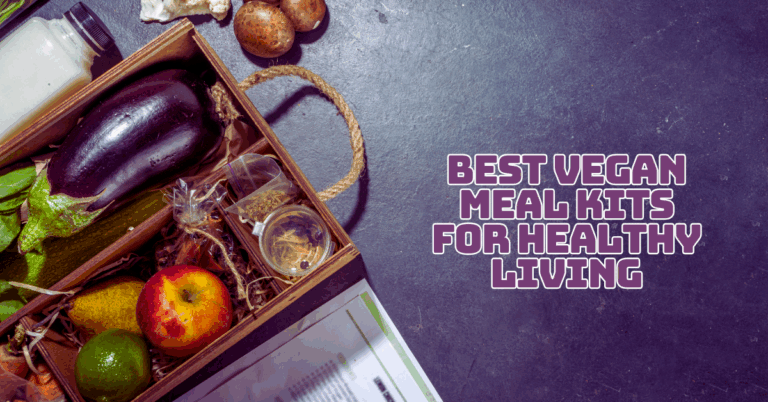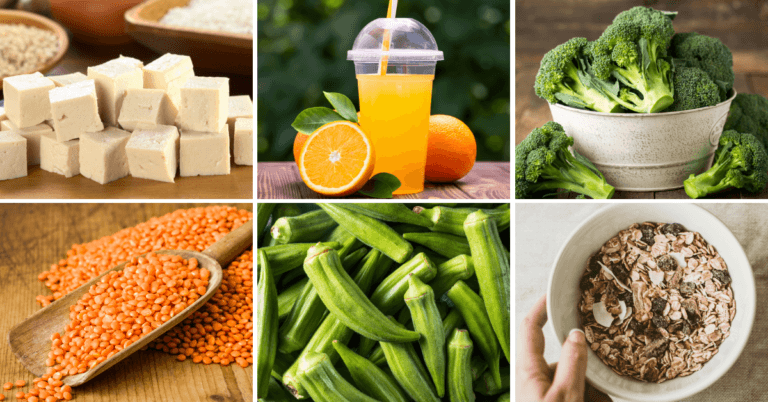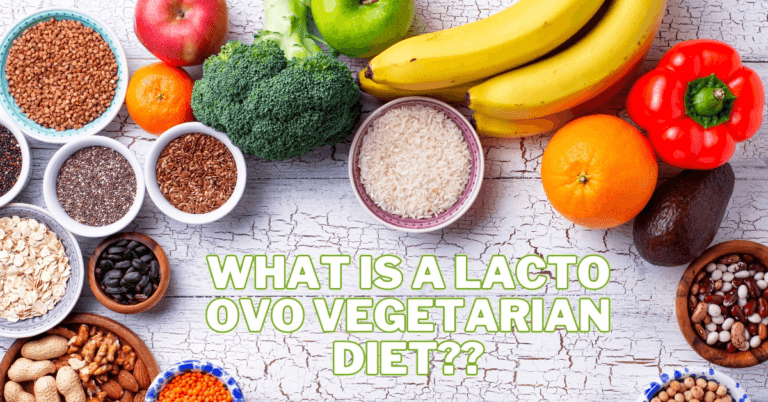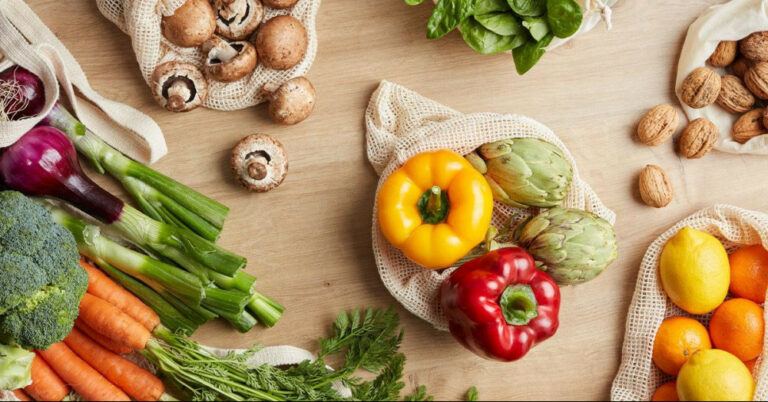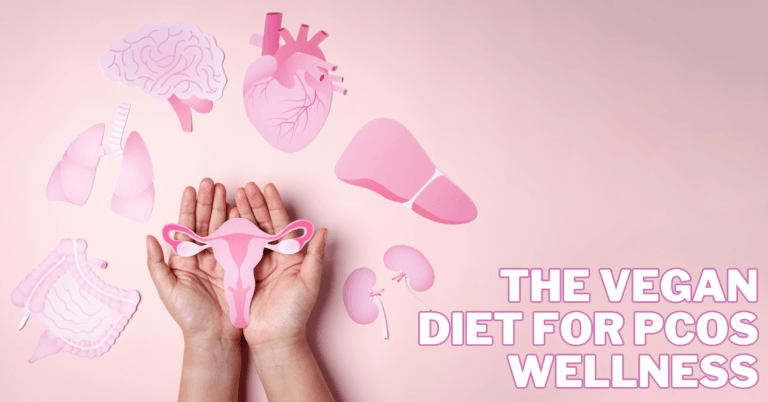The Ultimate Guide To Gaining Weight On A Vegan Diet
The Ultimate Guide To Gaining Weight On A Vegan Diet
Gaining weight on a vegan diet is achievable with the right approach. Incorporating nutrient-dense options into your meals can help you meet your weight gain goals.
While plant-based foods are often low in calories, you can easily meet your weight gain goals by incorporating nutrient-dense options.
This guide will explore high-calorie vegan foods, effective meal plans, and tips to build muscle mass, ensuring you gain weight healthily and sustainably.
Whether you’re looking to bulk up or recover from weight loss, the following strategies will support your journey on a plant-based lifestyle.

Gaining Weight On A Vegan Diet: Key Strategies For Healthy Weight Gain
Gaining weight on a vegan diet requires focusing on nutrient-dense, high-calorie foods and strategic meal planning. You can gain healthy weight by incorporating healthy fats, plant-based proteins, whole grains, and regular strength training. Here are some top strategies for healthy weight gain:
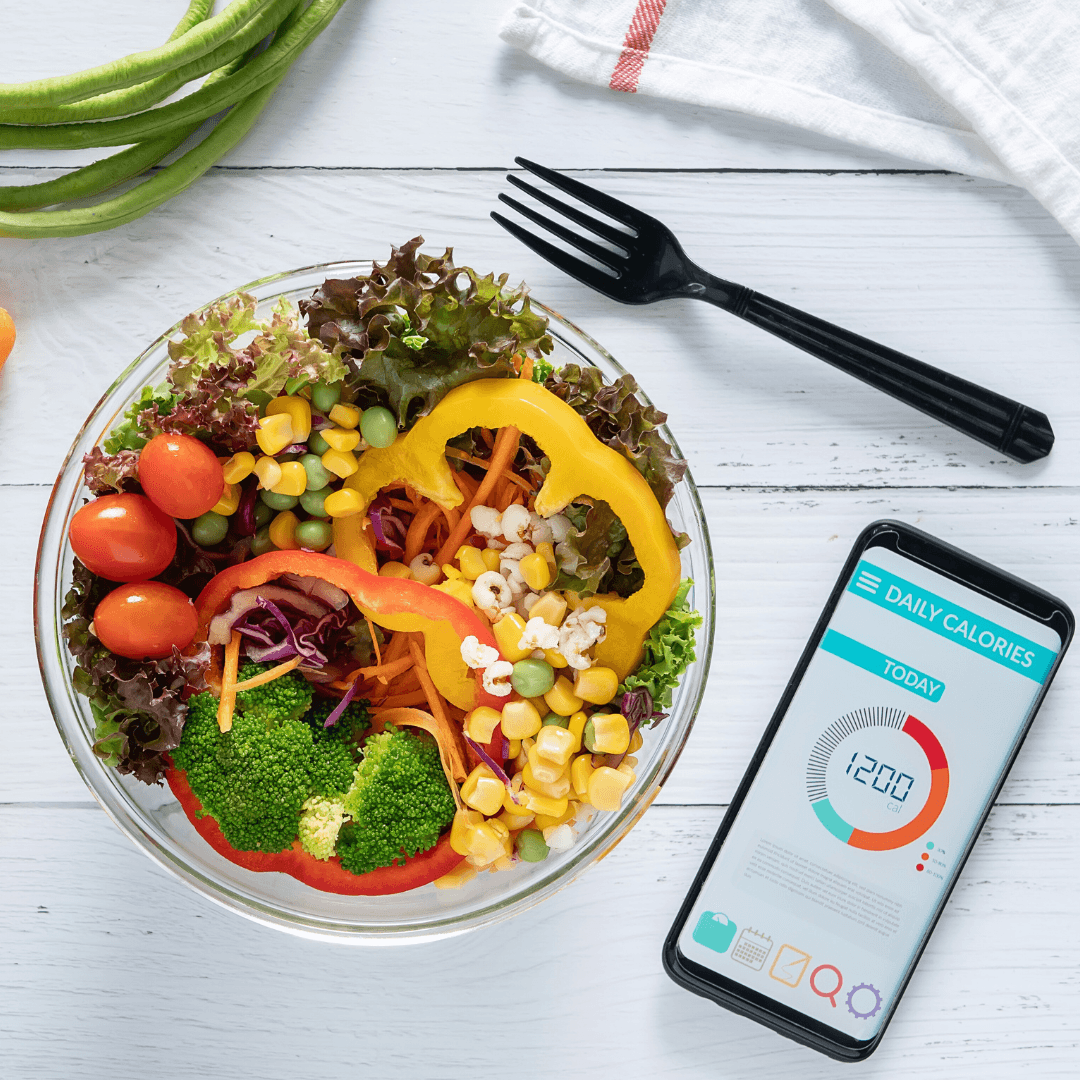
1. Focus On Calorie-Dense Foods
Calorie-rich foods like nuts, seeds, avocados, coconut, and plant-based oils are excellent for healthy weight gain. These foods include critical nutrients, including healthy fats, which can enhance your daily calorie intake without requiring excessive amounts.
Adding them to your meals and snacks can improve your diet's nutrient profile and help you achieve your weight gain objectives more easily.
2. Eat Frequent, Balanced Meals
Eating 5-6 smaller meals daily ensures a steady supply of nutrients and energy for healthy weight gain. Each meal should balance protein, fats, and carbohydrates to support metabolism and muscle growth.
Regular meals keep you from feeling too full, making consuming more calories throughout the day easier. Balanced nutrients help you gain weight without compromising your health.
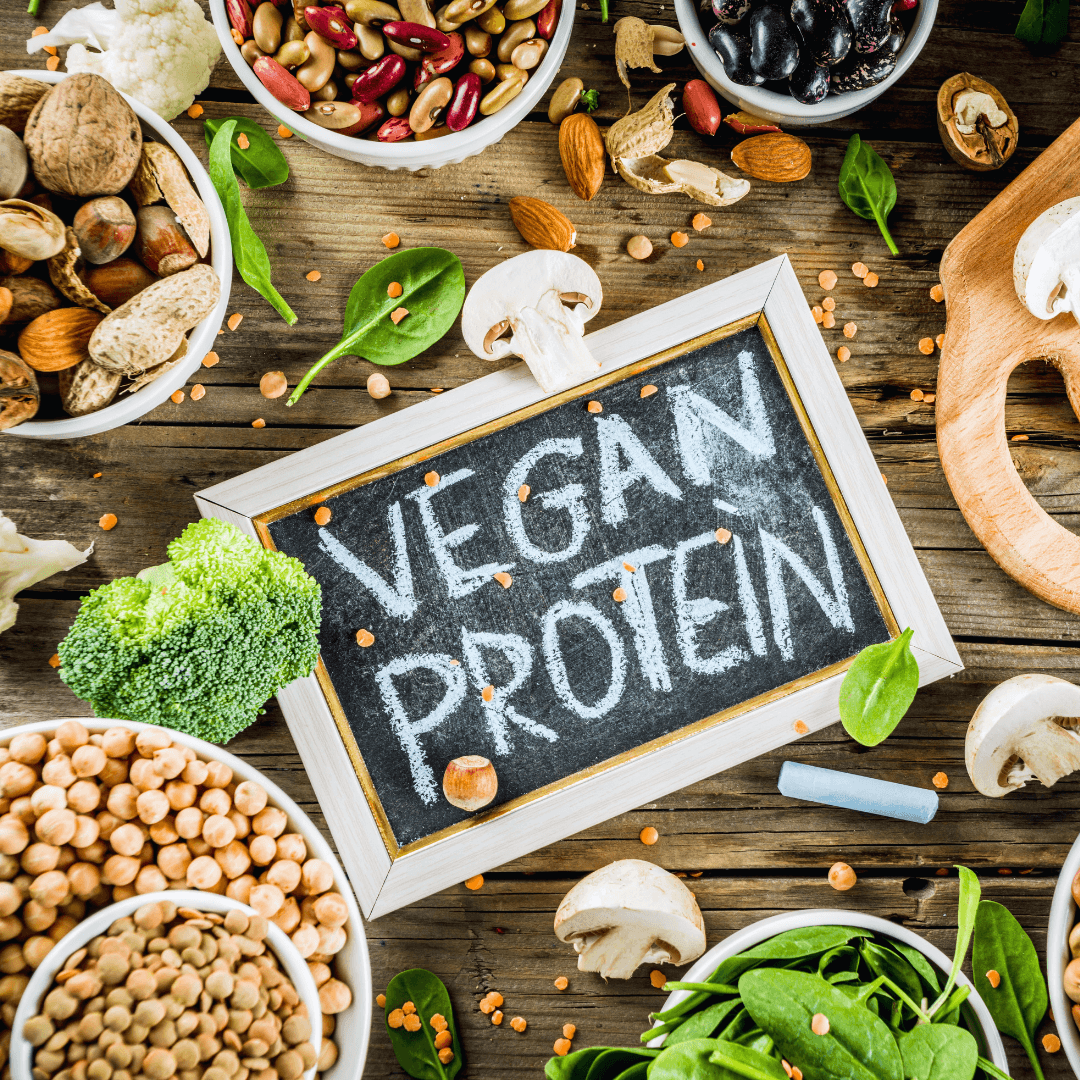
3. Prioritize Protein
Prioritizing protein is essential for gaining weight on a vegan diet, as it supports muscle development and repair while ensuring lean and healthy weight gain.
Lentils, beans, tofu, tempeh, and seitan are high-quality plant-based proteins that support muscle repair and growth. Every meal should contain protein to assist in maintaining muscle mass, particularly if strength exercise is added to your diet. Adequate protein intake ensures your weight gain is lean and healthy rather than just fat.
4. Include Whole Grains
Complex carbs and fibre from whole grains, such as quinoa, brown rice, and oats, promote long-lasting energy and a healthy digestive system.
These grains are nutrient-dense and calorie-rich, essential for healthy weight gain. They slowly release energy, help you feel fuller for longer, and meet your calorie requirements without making you feel bloated.
5. Drink High-Calorie Smoothies
High-calorie smoothies are an efficient way to boost daily intake without feeling bloated. Blending ingredients like nut butter, bananas, plant-based protein powder, and non-dairy milk provide a convenient, nutritious meal option packed with calories, protein, and healthy fats.
Smoothies are customizable and can include other calorie-dense ingredients like seeds or oats for additional nutrition and energy.
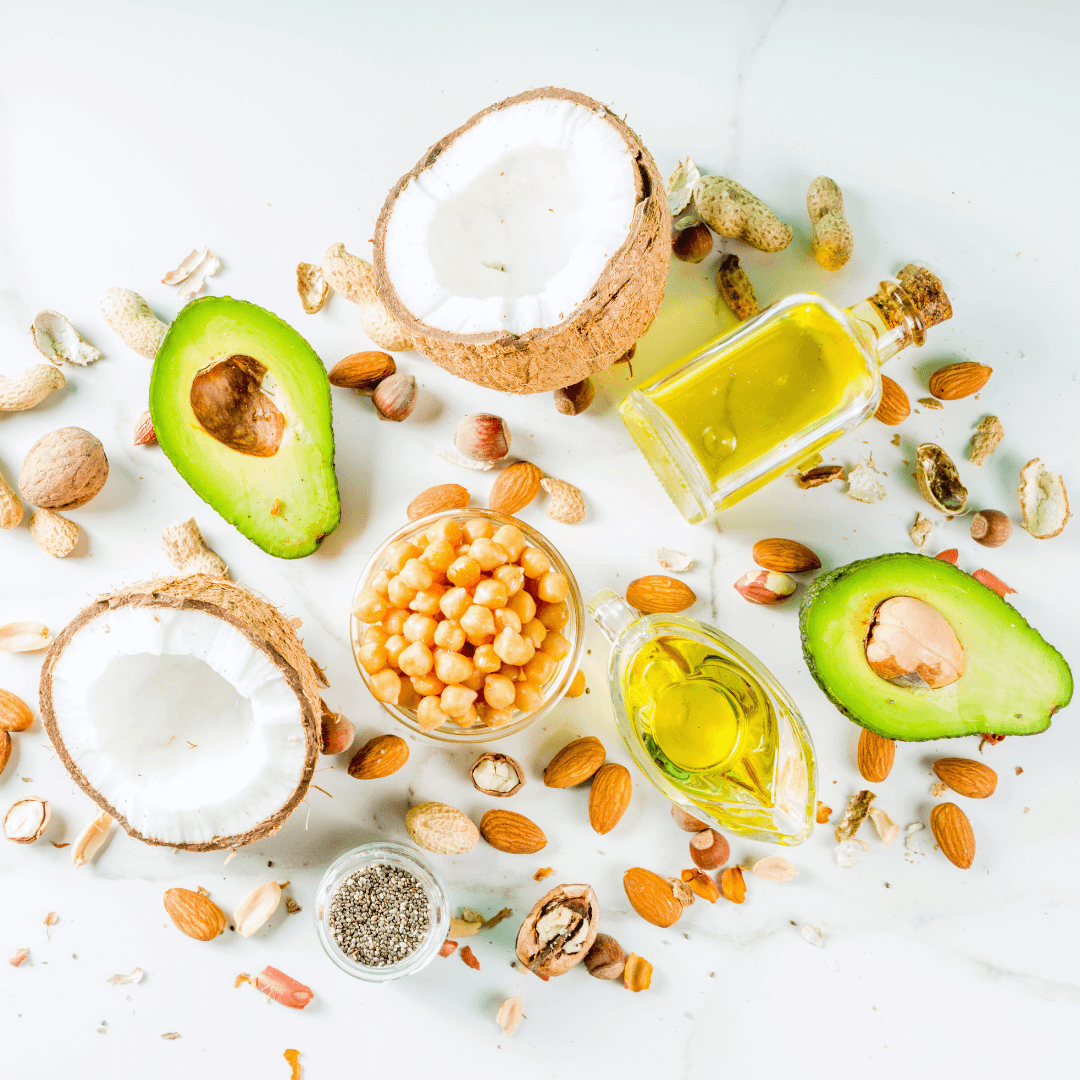
6. Use Healthy Fats Generously
Nut butter, coconut oil, and extra virgin olive oil are calorie-dense healthy fats that are simple to incorporate into your meals.
Drizzle olive oil on salads, add coconut oil to soups, or mix nut butter into stir-fries. These fats boost calorie content without requiring large portions, making them ideal for those looking to increase their intake without feeling overly full.
7. Don’t Skip Snacks
High-calorie snacks like trail mix, energy bars, and hummus with whole-grain crackers add extra calories between meals.
Daily snacking helps maintain consistent energy levels and meets your calorie goals. Choosing nutrient-dense, plant-based snacks allows you to boost intake without sacrificing nutritional quality, supporting healthy weight gain.
8. Add Plant-Based Supplements
Vegan protein powders and muscle gainers can be helpful if you have trouble getting enough calories from real foods. These supplements provide an easy way to boost calorie and protein intake without large meals.
They’re convenient and can be mixed into smoothies, oatmeal, or snacks, ensuring you meet your daily requirements for muscle growth and healthy weight gain.
9. Strength Training For Muscle Growth
According to strength training, weight gain should only come from lean muscle, not fat. Increased protein consumption helps to promote muscle growth during resistance training, such as bodyweight exercises or weightlifting.
Building muscle mass with regular exercise and a high-protein, plant-based diet encourages healthy, long-term weight gain.
10. Stay Consistent
Healthy weight gain is a slow process that demands patience and persistence. Track your calorie intake and progress to ensure you’re on the right path.
Adjust your diet and workouts as needed, but don’t expect rapid changes. By steadily increasing your intake and maintaining an active lifestyle, you’ll see sustainable results without compromising your health.
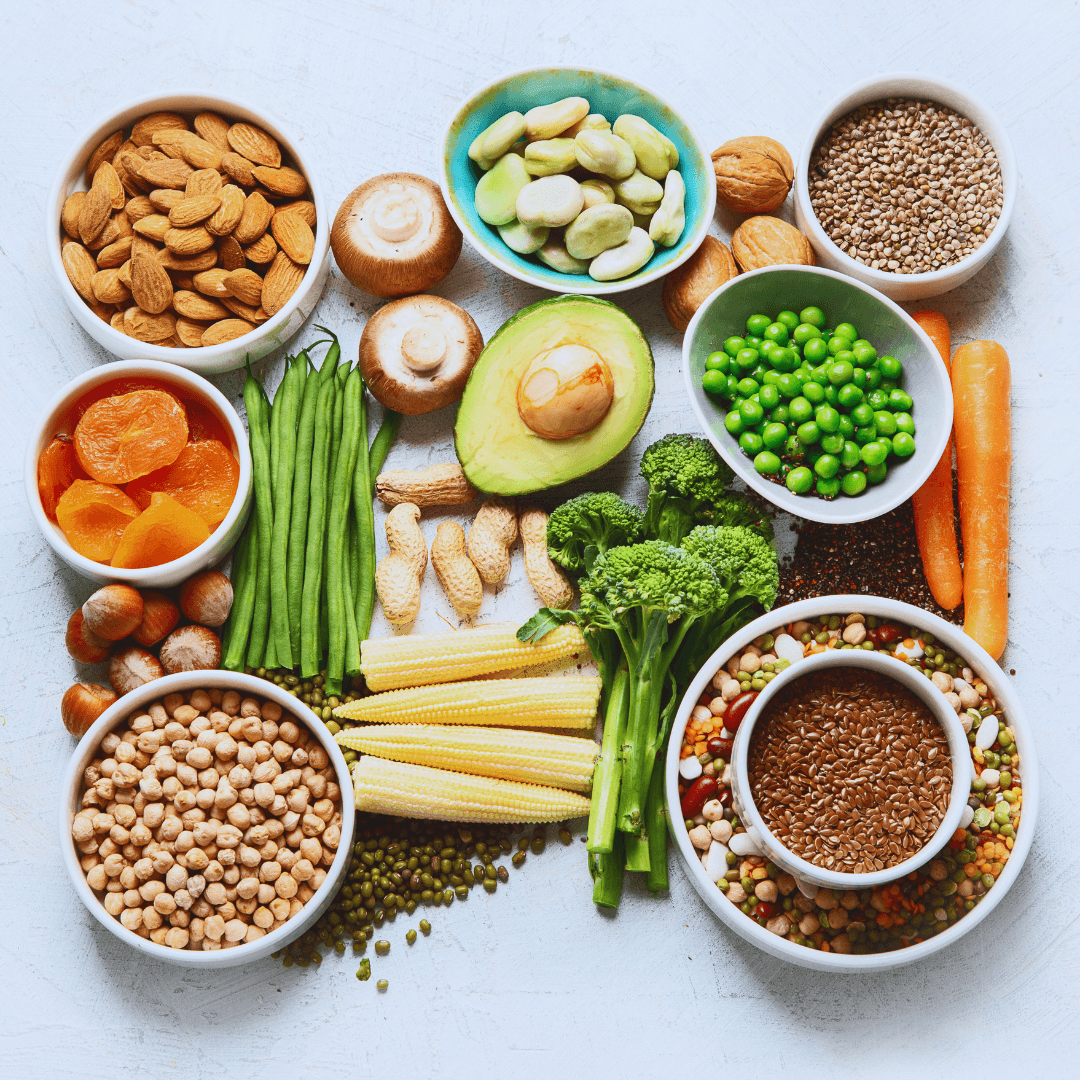
11. Incorporate Legume-Based Dishes
Legumes like black beans, chickpeas, and lentils are rich in complex carbohydrates and protein, making them perfect for healthy weight gain.
Hummus, lentil soup, or chickpea salads add variety and provide essential nutrients. These legumes promote muscle repair and growth while increasing calorie intake, ensuring you gain weight in a healthy and nutrient-dense way.
12. Cook With Whole Grains And Plant-Based Proteins Together
Combining plant-based proteins like tempeh, tofu, or seitan with nutritious grains like farro, bulgur, or quinoa can create nutrient-dense meals.
These combinations provide complex carbs for energy and protein for muscle development, supporting weight gain while energizing you.
Cooking with whole grains and plant-based proteins is an effective strategy for gaining weight on a vegan diet. It creates nutrient-dense meals that provide energy and protein for healthy weight gain.
13. Experiment With High-Calorie Spreads And Toppings
High-calorie vegan spreads like tahini, guacamole, and sunflower seed butter add flavour and calories to your meals. Spread them on toast, add them to roasted vegetables, or mix them into grain bowls.
These nutrient-packed toppings are rich in healthy fats, making them an easy way to increase caloric intake without adding too much bulk.
14. Embrace Carbohydrate-Rich Vegetables
Carb-rich vegetables like sweet potatoes, butternut squash, and peas offer more calories than leafy greens while still providing essential nutrients.
Including carbohydrate-rich vegetables is beneficial for gaining weight on a vegan diet, as they provide important nutrients and calories while sustaining energy levels.
They’re versatile and nutrient-dense, making them great for soups, salads, and roasted dishes while helping you reach your calorie goals.
15. Use Full-Fat Plant-Based Dairy Alternatives
Full-fat plant-based dairy alternatives like coconut yogurt, almond milk, and cashew cheese offer more calories than low-fat versions.
These products are rich in healthy fats and provide a creamy texture, making them ideal for smoothies, soups, or snacking.
They increase your overall calorie intake while ensuring that you consume quality, plant-based nutrients for healthy weight gain.
16. Incorporate Vegan Cheese Alternatives
Vegan cheeses made from cashews, almonds, or soy provide a rich source of calories and fats. These plant-based cheeses add flavour and texture to pasta, sandwiches, and salads, boosting nutritional content and calorie intake. Regularly using these alternatives ensures a higher calorie count while aligning with a plant-based diet.
17. Add Coconut Milk To Curries And Smoothies
Full-fat coconut milk is high in calories and healthy fats, making it perfect for boosting caloric intake. Adding coconut milk to curries, soups, or smoothies enhances creaminess and flavour and increases the meal’s calorie content without adding too much bulk. Its rich texture makes it easy to make meals more satisfying and calorie-dense.
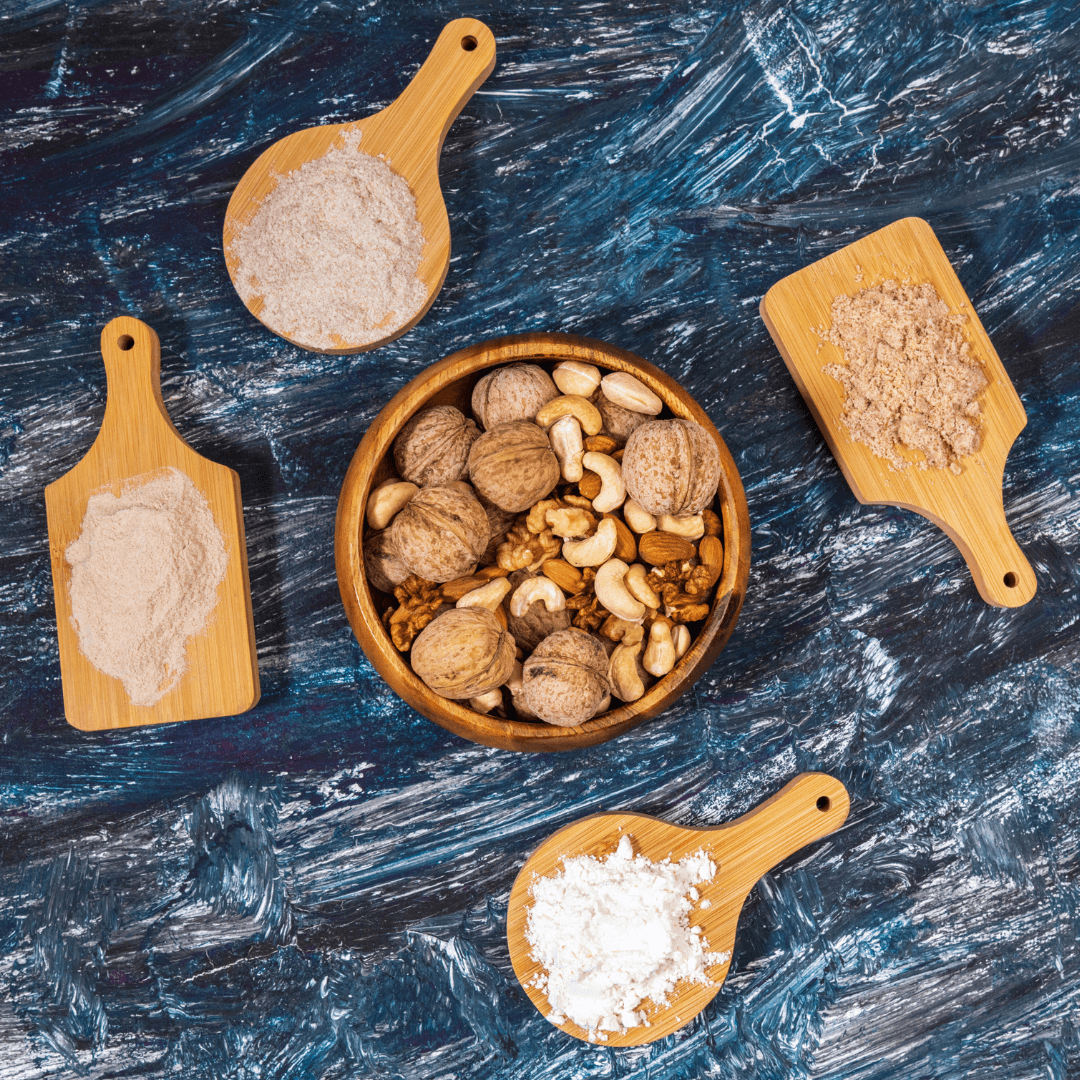
18. Bake With Nut And Seed Flour
Nut and seed flours, like almond or sunflower seed flour, are higher in calories and fats than traditional wheat flour. When used in baked goods like bread, muffins, and pancakes, they add extra calories and improve the nutrient density of recipes.
These flours add flavour and texture to baked goods, making them richer and more satisfying—a recipe for healthy weight gain.
19. Include Dried Fruits In Your Diet
Dried fruits like dates, apricots, and raisins are calorie-dense and contain concentrated sugars. These fruits are excellent for snacking or mixing into cereals, salads, and baked goods to increase calorie intake without adding much bulk.
Their natural sweetness makes them a convenient and delicious way to boost energy and calories throughout the day.
20. Choose Dense, Artisan Bread
Artisan breads like sourdough, rye, and multigrain are more calorie-rich and nutrient-dense than lighter options like white bread.
These denser breads are ideal for sandwiches, toast, or pairing with nut butter to add significant calories. Their fiber and nutrient content makes them a healthier, more filling option for those aiming to gain weight on a vegan diet.
21. Use Nut-Based Sauces
Nut-based sauces are rich, delicious, and bursting with calories and good fats from cashews or almonds. They are an excellent way to enhance your meals for gaining weight on a vegan diet, as they are rich in healthy fats, calories, and essential nutrients.
These sauces are a great option for encouraging weight gain without sacrificing flavour or nutrition because they are high in nutrients, protein, and vital fatty acids.

22. Add Plant-Based Oils To Smoothies And Salads
Plant-based oils like extra virgin olive, avocado, and flaxseed oil are calorie-dense and rich in healthy fats. Adding them to smoothies or drizzling them on salads increases your calorie intake without significantly changing the texture or flavour of the meal.
These oils also provide essential omega fatty acids, which support heart health while helping you meet your weight gain goals.
Vegan Weight Gain Diet Plan For 7 Days
Here's a detailed 7-day vegan weight gain diet plan focusing on calorie-dense, nutrient-rich foods. It’s designed to help you gain weight healthily while maintaining balanced nutrition.
Day 1
Breakfast
Oatmeal is made with almond milk and topped with banana, peanut butter, chia seeds, and maple syrup.
Snack
You need a handful of mixed nuts and a smoothie with almond butter, spinach, frozen berries, and protein powder.
Lunch
Quinoa salad with chickpeas, avocado, pumpkin seeds, and a tahini dressing
Snack
Hummus with whole-grain crackers.
Dinner
Lentil curry with full-fat coconut milk served with brown rice and sautéed spinach.
Before Bed Snack
Vegan protein shakes with almond milk, banana, and flaxseeds.
Day 2
Breakfast
Tofu scrambles with spinach, mushrooms, nutritional yeast, and whole-grain toast with avocado.
Snack
Trail mix with dried fruit, cashews, and dark chocolate.
Lunch
Black bean burrito with avocado, vegan cheese, brown rice, and salsa in a whole-wheat tortilla.
Snack
Coconut yogurt topped with granola and berries.
Dinner
Stir-fried tempeh with quinoa, broccoli, and sesame seeds in a tamari sauce.
Before Bed Snack
Almond butter on whole-grain crackers.
Day 3
Breakfast
This smoothie bowl is made with coconut milk, frozen mango, spinach, chia seeds, and granola and pumpkin seeds.
Snack
Handful of almonds and a banana.
Lunch
Sweet potato stuffed with lentils, topped with cashew cream and sautéed kale.
Snack
Roasted chickpeas and a vegan protein bar.
Dinner
Vegan lasagna made with whole-grain pasta, cashew cheese, and lentil bolognese.
Before Bed Snack
Oatmeal with almond butter and raisins.
Day 4
Breakfast
Chia pudding is made with coconut milk, peanut butter, sliced banana, and flaxseeds.
Snack
Hemp seed-studded dates that are packed with almond butter.
Lunch
Quinoa bowl topped with guacamole, black beans, corn, and roasted sweet potatoes.
Snack
Vegan protein shakes with soy milk, spinach, frozen berries, and flaxseeds.
Dinner
Vegan burger (black bean patty) with avocado, vegan cheese, and sweet potato fries.
Before Bed Snack
Coconut yogurt with mixed berries and walnuts.
Day 5
Breakfast
You can have whole-grain toast with almond butter, sliced banana, chia seeds or a smoothie with soy milk, spinach, and protein powder.
Snack
Handful of mixed nuts and dried apricots.
Lunch
Farro bowl with roasted vegetables, tofu, sunflower seeds, and tahini dressing.
Snack
Guacamole with whole-grain tortilla chips.
Dinner
Vegan chickpea curry with full-fat coconut milk, served with brown rice and sautéed greens.
Before Bed Snack
Protein-packed smoothie with almond butter, oats, and frozen fruit.
Day 6
Breakfast
Almond flour pancakes with maple syrup, fruit, and coconut yogurt on top.
Snack
Vegan protein bar and a handful of walnuts.
Lunch
Avocado and wholegrain bread on the side with lentil soup.
Snack
Trail mix with cashews, raisins, and dark chocolate.
Dinner
Stir-fried tofu with soba noodles, broccoli, sesame seeds, and tamari sauce.
Before Bed Snack
Smoothie with coconut milk, protein powder, chia seeds, and frozen mango.
Day 7
Breakfast
Almond milk, chia seeds, peanut butter, and banana slices are combined to make overnight oats, and maple syrup is added.
Snack
Handful of mixed nuts and dates.
Lunch
Buddha bowl with quinoa, roasted chickpeas, avocado, kale, and tahini dressing.
Snack
Hummus with carrot sticks and whole-grain crackers.
Dinner
Vegan pizza with cashew cheese, roasted vegetables, and a whole-grain crust.
Before Bed Snack
Almond butter on whole-grain toast with a drizzle of agave syrup.
Tips For Success
Hydration
To stay hydrated, sip on lots of water and herbal teas throughout the day.
Calorie Boost
If needed, increase portions or add more calorie-dense toppings like nuts, seeds, or nut butter to meals and snacks.
Strength Training
Combine this diet with a regular strength training routine to promote muscle gain alongside weight gain.
FAQ
1. Can I Gain Weight On A Vegan Diet?
Yes, gaining weight on a vegan diet is possible by consuming nutrient-dense, high-calorie foods and eating more calories than your body burns. Focus on foods rich in healthy fats, protein, and carbohydrates.
2. What Are The Best Vegan Foods For Weight Gain?
Some of the best foods for gaining weight include nuts, seeds, avocados, coconut, nut butter, tofu, tempeh, legumes, whole grains, and plant-based oils. Incorporating smoothies and protein shakes can also help.
3. How Much Protein Do I Need For Weight Gain On A Vegan Diet?
Aim for 0.7–1 grams of protein for every pound of body weight, depending on your activity level. Great vegan protein sources include lentils, chickpeas, quinoa, seitan, tofu, tempeh, and protein-rich plant-based powders.
4. Do I Need To Eat Junk Food To Gain Weight On A Vegan Diet?
No, you don’t need to rely on junk food. You can gain weight healthily by consuming calorie-dense, whole foods like nuts, seeds, avocados, and whole grains. These foods offer the calories and nutrients needed for weight gain without compromising health.
5. How Often Should I Eat To Gain Weight On A Vegan Diet?
To gain weight, aim to eat 5–6 meals or snacks throughout the day, including breakfast, lunch, and dinner, with multiple snacks or smoothies in between. This will help you consistently consume more calories.
6. Can Exercise Help With Weight Gain On A Vegan Diet?
Strength training or resistance exercises help build muscle, contributing to healthy weight gain. To gain muscle mass, combine regular workouts with a calorie-surplus diet.
7. How Long Does It Take To Gain Weight On A Vegan Diet?
The time it takes to gain weight depends on factors like metabolism, activity level, and consistency. Generally, aim for a gradual weight gain of 0.5–1 pound per week by consistently eating a calorie surplus.
Conclusion
In conclusion, concentrating on calorie-dense, nutrient-rich foods and regular, deliberate planning can help vegans gain weight.
Focusing on calorie-dense, nutrient-rich foods like legumes, whole grains, healthy fats, and plant-based proteins can ensure healthy weight gain while maintaining optimal nutrition.
Consistency is key—be patient with your progress and make adjustments as needed. With dedication and mindful planning, a vegan diet can help you reach your weight goals healthily and sustainably.
I trust you enjoyed this article about The Ultimate Guide To Gaining Weight On A Vegan Diet. Please stay tuned for more blog posts on veganism to come soon. Take care!
JeannetteZ
>>>Please click here to read my Vegan Travel Guides To World Destinations<<<
>>>Do You Want To Learn How To Create Delicious, Cruelty-Free, Healthy AND 100% Vegan Meals? Try These Awesome Vegan Cooking Courses With A Free 7-DAY MEMBERSHIP<<<
Your Opinion Is Important To Me
Do you have thoughts, ideas, or questions? I would love to hear from you. Please leave me your questions, experiences, and remarks about this blog post, The Ultimate Guide To Gaining Weight On A Vegan Diet, in the comments section below. You can also email me at Jeannette@LivingTheVeganLifestyle.org.
Disclosure
This post may contain affiliate links. I earn from qualifying purchases as an Amazon Associate and other affiliate programs. Please read my full disclosure.
Here are links to some of my favourite articles:
A Guide To Living The Vegan Lifestyle
Amazing Health Benefits Of A Raw Vegan Diet
How To Lose Weight On A Raw Vegan Diet
How To Gain Weight On A Raw Vegan Diet

